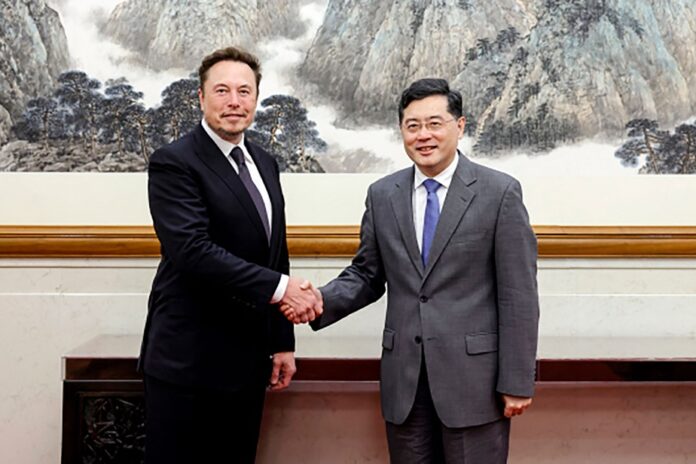(Washington) Elon Musk, the boss of Twitter, Tesla and SpaceX, said on Monday that he had spoken with senior Chinese politicians about the need to regulate artificial intelligence (AI) during his trip to China last week. .
“We’ve had very productive discussions about the risks of AI and the need for oversight or regulation,” he said in a Twitter Live discussion with presidential candidate Robert Kennedy Jr. low odds – at the Democratic nomination against Joe Biden.
“What I take away from these conversations is that China is going to put in place AI regulations in China.”
President Xi Jinping and other leaders agreed last Wednesday at a summit meeting of the Chinese Communist Party to “enhance surveillance of network data and artificial intelligence,” according to reports. state media.
Chinese authorities had already announced in April that they would impose a “security inspection” on Chinese-developed AI-powered tools like ChatGPT. AI-generated content should “reflect core socialist values and not contain (material relating to) the subversion of state power.”
The draft regulations, which in China’s highly centralized political system are likely to come into force, were unveiled as many Chinese technology companies such as Baidu, Alibaba, JD.com and ByteDance (parent company of TikTok) recently announced that they are working on their own so-called “generative” AI model, hoping to ride on the success of the American pioneer ChatGPT.
This program, developed by the Californian OpenAI, is generating a worldwide wave of enthusiasm, but also of concern about its ability to produce all kinds of coherent texts, and the opacity of the underlying language model.
Elon Musk spent two days in China without tweeting. This visit by one of the richest men in the world is controversial due to political and trade tensions between the United States and China.
The multi-billionaire has also sparked controversy by suggesting that the island of Taiwan, claimed by Beijing, should be part of China.
He was greeted at almost the same level as a foreign political leader, with meetings with several government officials, and he “praised China’s vitality and development potential”, according to Foreign Ministry Qin Gang.
“I pointed out that if ever an ultra-powerful digital super intelligence was developed in China, it would pose a risk to the sovereignty of the Chinese government,” he said Monday. “And I believe they take that risk seriously.”















